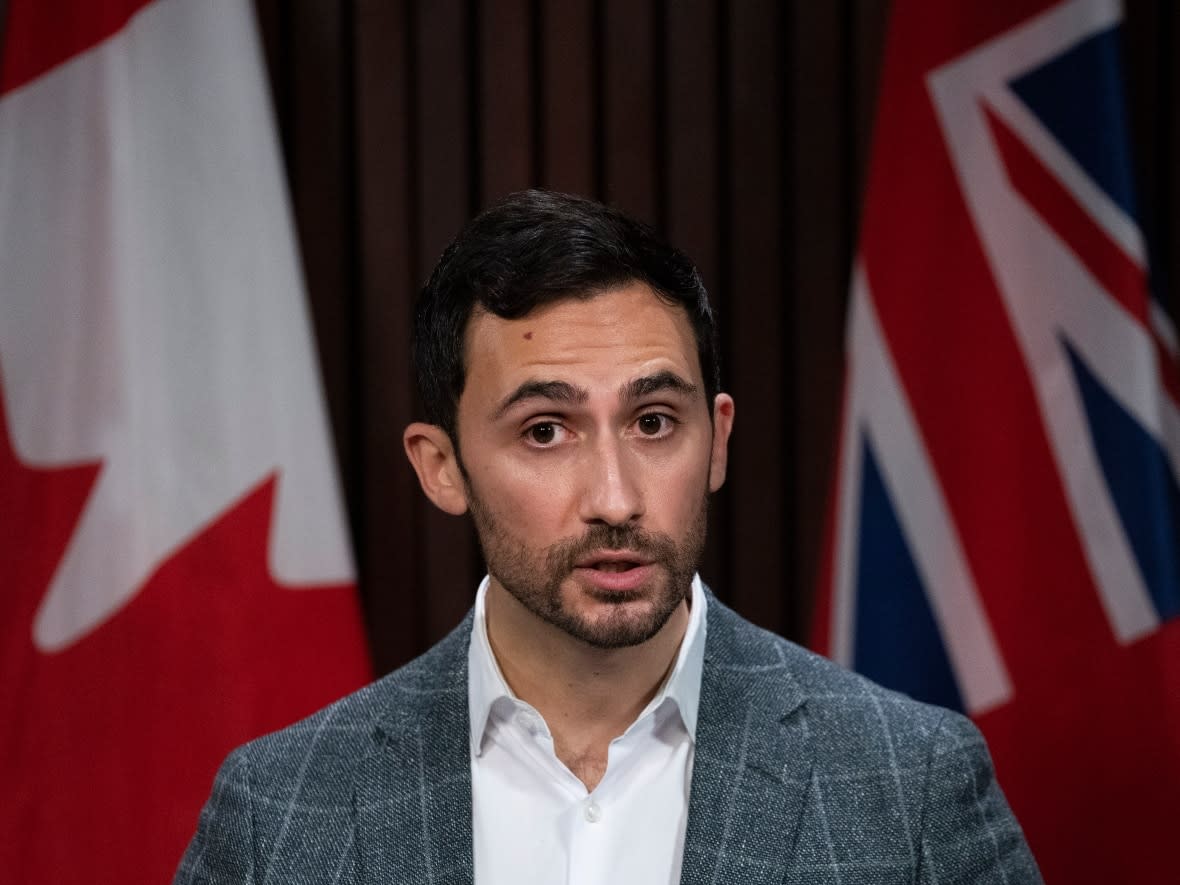Province's offer to CUPE is 'reasonable' and 'responsible,' says Ontario's education minister

Ontario's education minister is defending the government's offer to one of the province's education unions, saying the latest move to signal a potential strike is "not fair on families."
The Canadian Union of Public Employees (CUPE) announced Monday that education workers under the Ontario School Board Council of Unions such as early childhood educators, custodians and school administration staff voted 96.5 per cent in favour of a strike.
The province has offered raises of two per cent a year for workers making less than $40,000 and 1.25 per cent for all other workers, while CUPE is looking for annual increases of 11.7 per cent.
On Tuesday, Education Minister Stephen Lecce said the government is trying to prevent a strike from taking place, which could cause kids' classroom time to be in jeopardy.
"We're suggesting that [our] offer is reasonable. What is unreasonable given that whatever we sign with CUPE sets the floor in the negotiation with every other teacher union. It is a nearly $20 billion sector-wide increase," Lecce told CBC Radio's Metro Morning on Tuesday.
"This costs the taxpayer money, right? So this is from a government perspective."
LISTEN | Education Minister Stephen Lecce on CUPE's move to vote in favour of a strike:
The government has noted that CUPE is also asking for five additional paid days before the start of the school year, 30 minutes of paid preparation time each day, and increasing overtime pay from a multiplier of 1.5 to 2.
CUPE said more than 80 per cent of its 55,000 education worker members voted over 10 days.
Compensation package 'reasonable' and 'responsible'
Before a strike could happen, the union would have to ask the conciliator to issue a "no board" report, meaning a deal can't be reached. Once that report is issued, the union would be in a legal strike position 17 days later, and it also has to give five days' notice of any job action.
Asked if not keeping up with inflation rates would mean a wage cut for education workers, Lecce defended the province's offer to unionized workers, adding that the compensation package is "reasonable" and "responsible."
"When you look at the total investments we're provided for this proposal on the benefits, the pensions of sick leave and the pay, we believe what we have offered really exceeds what many people out there [have]," he said.
"I think that this education union is on a path to strike before the government offered our first proposal to them," Lecce said. "That is not fair on families."
'School is not normal. School is not stable'
Laura Walton, the president of CUPE's Ontario School Board Council of Unions, said retention and recruitment issues are currently plaguing schools across the province.
"Right now, school is not normal. School is not stable," Walton told CBC Radio's Metro Morning on Tuesday.
Walton has said the government's offer, which amounts to an extra $800 a year for the average worker, falls far below what is being asked for.
"The majority of education workers make on average $39,000 a year, and they're working multiple jobs to make ends meet, and they're asking this government for a real wage increase," she said.
"We also need to understand that these also are parents, and they do want this school year to be smooth. But they also want to be able to afford to put food on the table."
The union said bargaining dates are scheduled with the government on Thursday, Friday, and Oct. 17 and 18.

 Yahoo Movies
Yahoo Movies 
